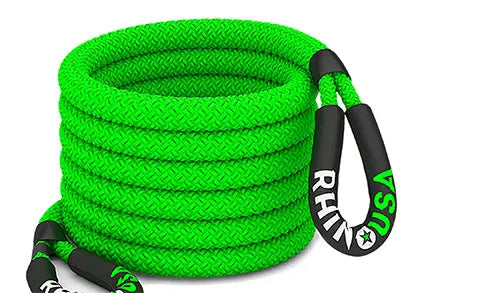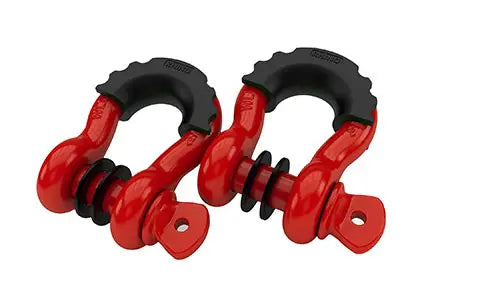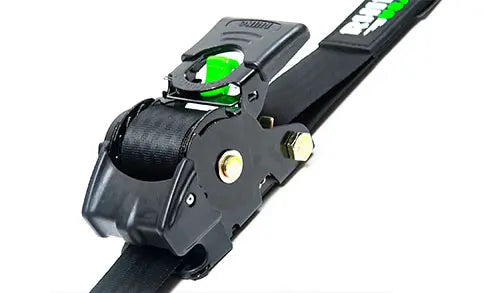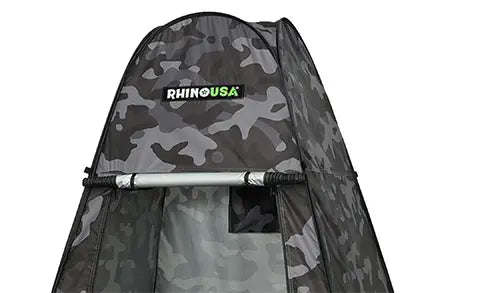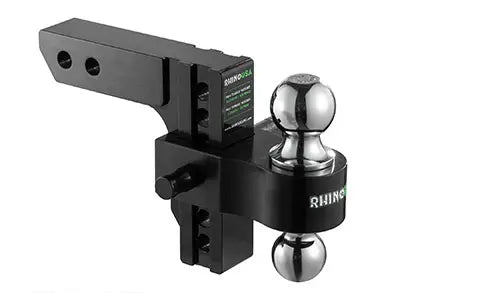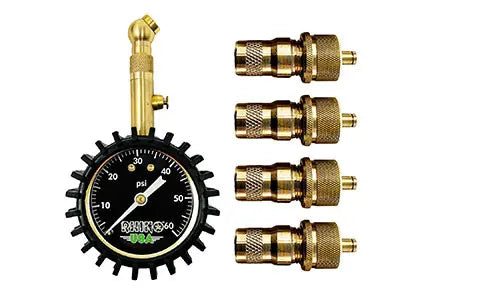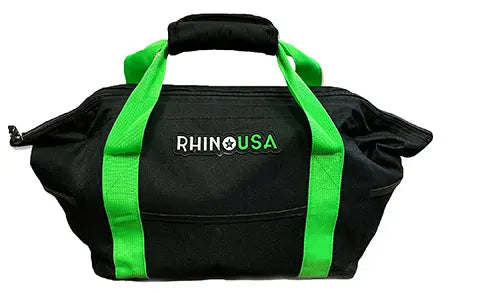
How to use Ratchet Straps in 3 Easy Steps!
A step-by-step guide on how to use ratchet straps the right way!
Ratchet straps are really useful tools for anyone who is seeking to effectively secure cargo or equipment during transportation. Also known as tie-down straps or lashing straps, these items are time-tested, effective and durable. However, you need to be able to set them up the right way! Keep reading to learn more about how to use ratchet straps correctly, and keep your things safe while you carry them with you.
Assembly before use
Before using your ratchet strap, you need to assemble it the right way. The process is quite easy, and it is not very time consuming, but you need to be careful with every step you take. It’s really all about threading in the webbing! Most people keep their ratchet straps assembled after they use them, but others prefer to disassemble them after each use, to store them properly and facilitate maintenance.
Threading your ratchet straps correctly.
 MUST SEE: Rhino USA Retractable Ratchet Straps in Lowe's!
MUST SEE: Rhino USA Retractable Ratchet Straps in Lowe's!
- The first thing you’re going to want to do is to thread the ratchet buckle. On most ratchet straps, you are going to be able to do that by actually placing the webbing through the slot that’s found in the center of the ratchet. By pulling the webbing through and then back towards you over the spindle, you should be able to secure it. It is very important to avoid over-tightening the webbing, as ratchet straps that are too tight might damage your items! Leave it loose enough that it has a little bit of room to wiggle, because you are going to need to add more tension later on, as per the following pointer.

-The next thing you will want to do is to raise and lower the handle of the ratchet. This will allow the webbing to seamlessly wind itself, so it can get locked into place and increase tension this way.
As you can see, the process is not that hard at all! It might be a little bit awkward for a beginner at first, but it doesn’t really take long to get used to using ratchet straps, and this technology is absolutely foolproof! Releasing the ratchet straps is just as easy as installing them.
Releasing your ratchet straps, the right way.

- In order to get started, you are going to need to release the webbing. You can do that by pulling and holding the release tab that’s found on the top assembly on most ratchet straps. This will allow you to essentially… stop the ratchet from ratcheting!
- Open the ratchet, and make sure that both assemblies are lined up correctly. You might hear a click sound that will confirm the detention of the ratchet straps.
- In order to release the webbing, you simply need to grab it from the non-fixed side of it and start pulling.
Advanced Tips for Using Ratchet Straps Like a Pro
While we've covered the basics of using ratchet straps in the previous section, there are some advanced tips and techniques that can help you become a true pro in securing your cargo. These strategies go beyond the basics and can make a significant difference in how to effectively use ratchet straps.
1. Consider Load Distribution:
One key aspect of using ratchet straps effectively is to distribute the load evenly across your cargo. This not only prevents damage to your items but also ensures a more secure hold. Here's how you can achieve proper load distribution:
-
Use Multiple Straps: Instead of relying solely on one strap, consider using multiple straps to secure your load. This helps distribute the tension evenly and provides redundancy in case one strap fails.
-
Arrange Cargo Evenly: When securing irregularly shaped items or multiple pieces of cargo, arrange them so that the weight is evenly distributed. Avoid placing heavier items on one side, as this can lead to imbalanced tension.
-
Use Spacer Bars: For large or bulky items, consider using spacer bars or blocks between items to create even pressure on the straps. This prevents items from shifting during transport.
2. Proper Storage of Ratchet Straps:
Taking care of your ratchet straps when they are not in use is just as important as using them correctly. Proper storage ensures that your straps remain in good condition and are ready for use when needed:
-
Clean and Dry: After use, clean any dirt or debris from your straps and make sure they are completely dry before storing them. Moisture can lead to rust and deterioration of the strap material.
-
Avoid Knots: Never tie knots in your ratchet straps. Knots can weaken the straps and reduce their load-bearing capacity. Instead, use a storage bag or container to keep them organized.
-
Inspect for Damage: Before each use, inspect your ratchet straps for any signs of wear, damage, or fraying. Replace any damaged straps immediately to ensure safety.
3. Proper Tension and Torque:
Achieving the correct tension in your ratchet straps is essential for a secure hold. Here are some tips to help you get the tension just right:
-
Apply Tension Gradually: When tightening the strap, apply tension gradually and evenly. This prevents sudden jolts that could damage your cargo or the strap itself.
-
Recheck Tension: Periodically check the tension of your straps during transit, especially for long journeys. Temperature changes and vibrations can affect the tightness of the straps, so adjustments may be necessary.
By applying these advanced tips and techniques, you can maximize the effectiveness of your ratchet straps and ensure the safe and secure transport of your cargo. Remember, safety should always be your top priority, so invest the time and effort in using ratchet straps correctly and maintaining them properly.
Conclusions:
In conclusion, the process really could not be easier. It’s important to follow each step with care, and make sure to avoid putting too much stress and tension on the ratchet. One of the most common mistakes when it comes to using the ratchet strap is actually related to people who use way too much tensioning, resulting in less than optimal operational conditions. There is a wide range of ratchet straps and similar products on the market. While the procedures described in this article are quite common and constitute an ideal guideline for most of what you will find out there, there could be some differences depending on the brand or model you are using. Some manufacturers might be using some different technologies as ours. As with many things in this industry, one of the best things you could do is to simply take some time to actually read the manual…as they say… RTFM!
It might seem like a silly waste of time to read the manual of your ratchet straps, but it can actually help you save some time in the long run, and perhaps even avoid some issues while you are trying to figure out how to use them, maintain them, store them and keep them in good working order for many, many years to come.
Featured Product: Rhino USA Ratchet Straps

We sell heavy duty ratchet straps, if you're interested in getting a set of Rhino Straps please click here. Thanks for stopping by and we hope this article was beneficial and informative. Ride on!
FAQ's
How to loosen a ratchet strap
The best way to loosen a ratchet strap is by pulling on the manual pawl and pulling the handle flat. Once the handle is all the way flat you should hear and feel the ratchet release and the straps begin to loosen. Check out our step by step guide for more information on releasing your ratchet straps.
Where to buy ratchet straps
For the highest quality, longest-lasting ratchet straps, head over to RhinoUSAinc.com. Our heavy duty ratchet straps are made with the best materials and come with a lifetime warranty!
- Choosing a selection results in a full page refresh.

